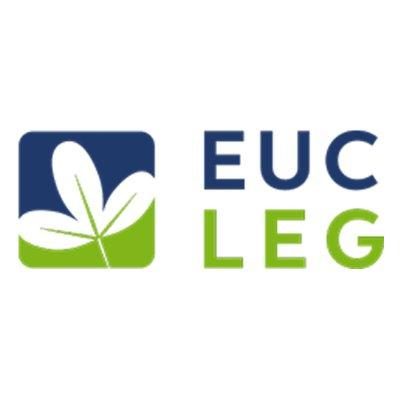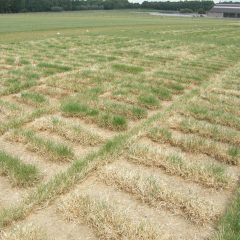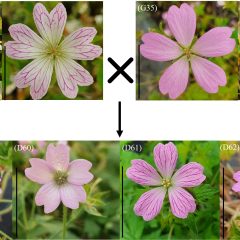Research project Breeding of forage and grain legumes to increase protein self-sufficiency in the EU and China

General introduction
EUCLEG is an EU Horizon2020 project, in which breeding strategies for soybean, pea, faba bean, red clover and alfalfa are developed in collaboration with 37 research institutes and companies from EU and China. The ultimate goal is to reduce the dependence of the EU and China on protein imports. EUCLEG uses advanced molecular and phenotypic tools to develop varieties that are suitable for cultivation in different climates, with a high protein yield and a high degree of disease and pest resistance, which that also meet the needs of the food and feed sector. Within the project ILVO is mainly involved in the research on soybean and red clover.
Research approach
The research approach is the same for the five leguminous crops. Approximately 400 diverse accessions are sown per species at different test field locations. EUCLEG combines i) the development of genomic tools in red clover, alfalfa and faba bean; (ii) the phenotypic evaluation of genetic resources, including ecotypes, landraces, recent varieties, breeding lines and breeding populations; iii) identification of genes and DNA markers linked to important agronomic properties; iv) testing the potential of genomic selection in the five crops. During two growing seasons, relevant agronomic characteristics are determined (yield, yield components, etc.) in multi-location field trials. Experiments under (semi) controlled conditions are performed to follow specific characteristics (disease resistance, drought tolerance, growth rate, etc.). Protein content and protein quality are also determined. In addition, these accessions are genotyped using SNPs (single nucleotide polymorphisms). All generated data in the project are stored in on-line databases that facilitate data exchange and consultation as well as processing and analysis of these data. EUCLEG thoroughly describes the genetic and phenotypic diversity available in the five legumes studied. In addition, correlations and associations are made between agronomic characteristics and DNA polymorphisms. This yields molecular markers that can be used in breeding programs.
Relevance/Valorization
This project fits perfectly into the Flemish and European strategy to promote the production of protein crops. The network of EUCLEG trial field locations covers a variety of pedoclimatic zones in which the cultivation potential of these five leguminous crops can be further extended. By combining advanced phenotyping and genotyping instruments through association genetics and genomic selection, EUCLEG provides insights, knowledge and plant material that accelerates the improvement of the five crops studied and make them more efficient. The generated phenotypic and genotypic data are made public at the end of the project and can be used to supplement EURISCO, the European search portal for genetic sources of plants.









